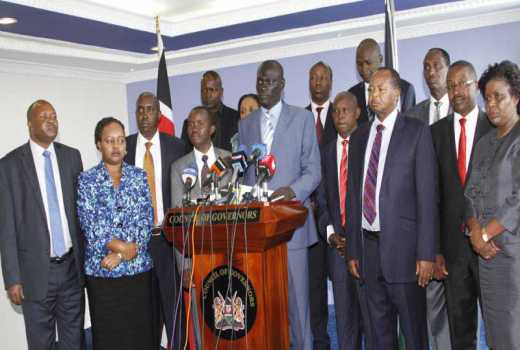×
The Standard e-Paper
Home To Bold Columnists

Governors are pushing for activation of the County Policing Authority to help them manage security in the counties.
Some county chiefs are accusing police of being skeptical and generally opposing it over fears it might duplicate their perceived duties.